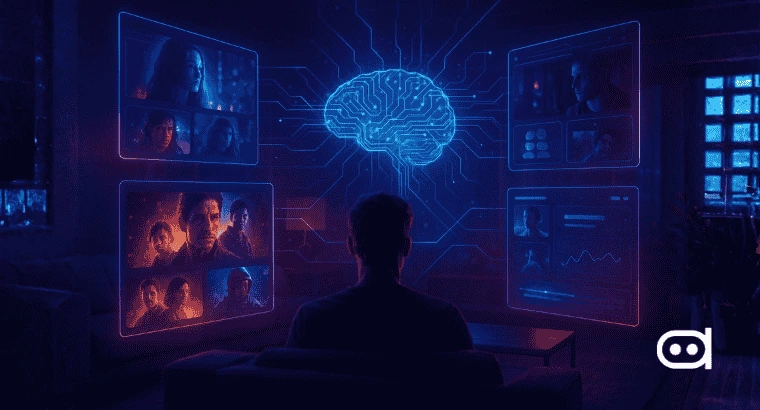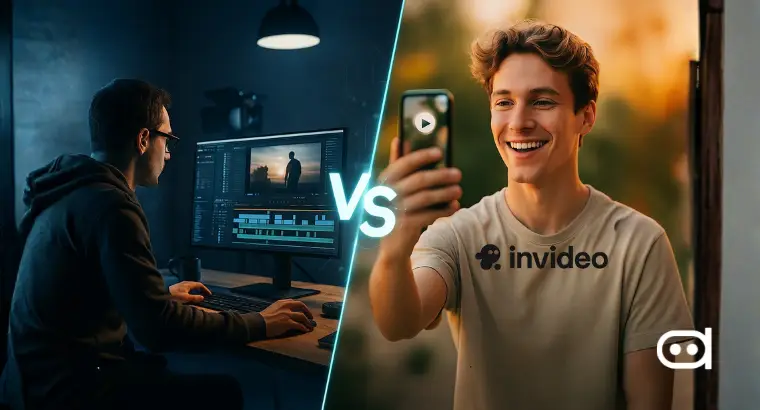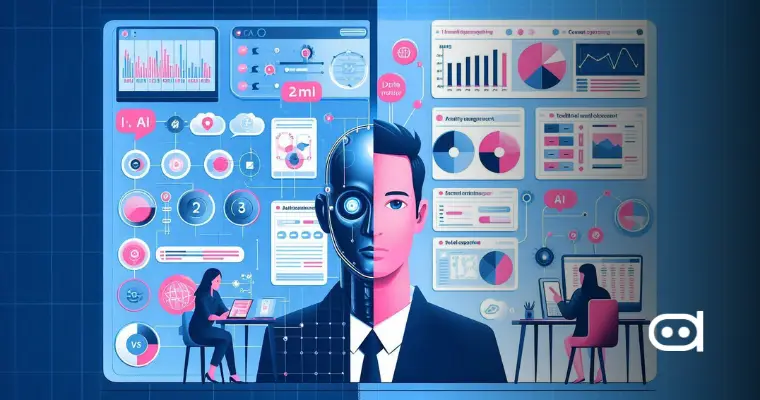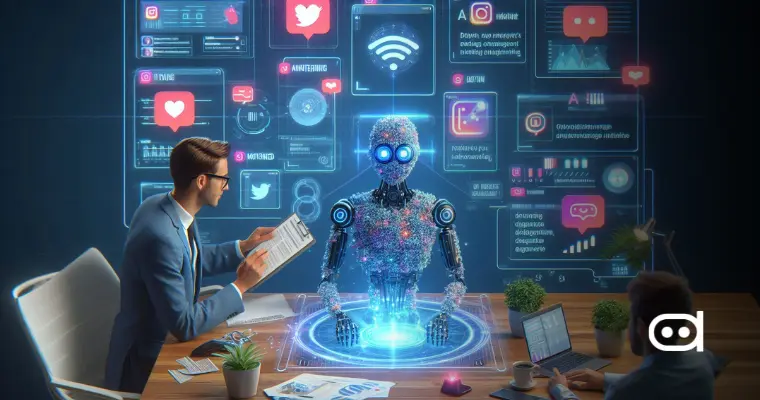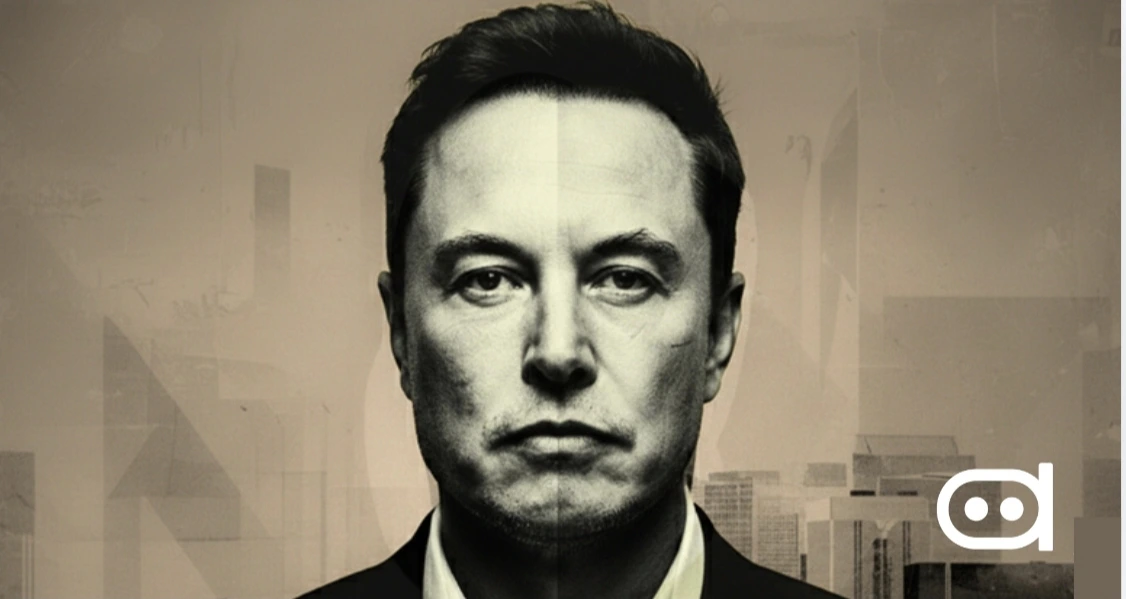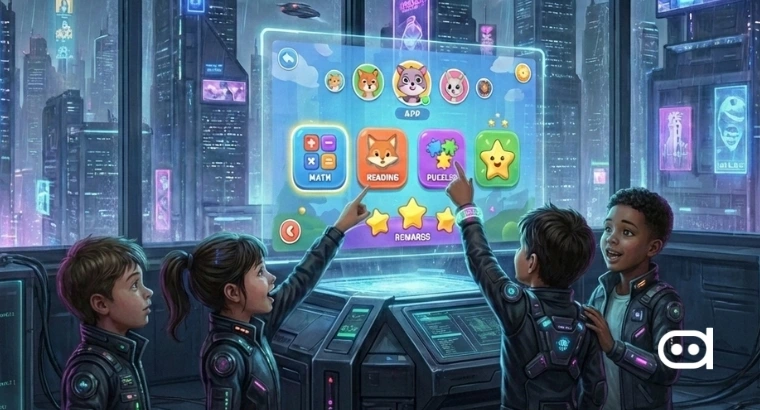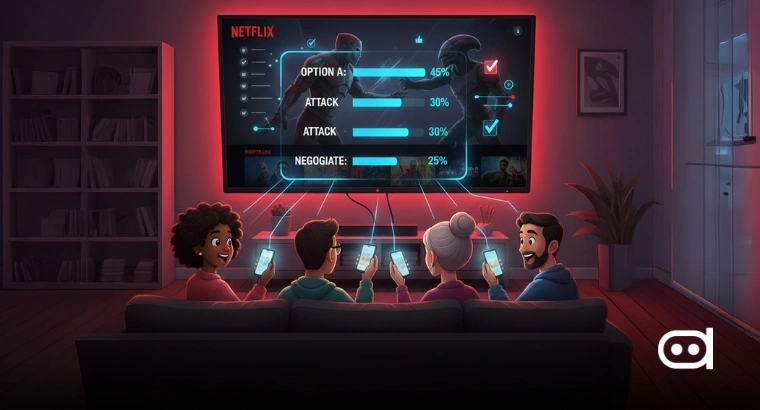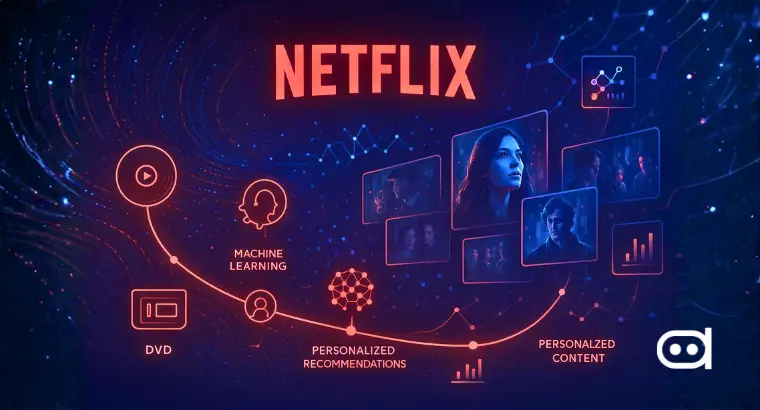
Netflix’s meteoric rise from a DVD rental company to the world’s largest streaming platform is defines how technology and storytelling merged at scale. With a great number of shows, films, and originals vying to capture attention, personalization is Netflix’s secret weapon in the war of streaming services. At the very core of personalization is artificial intelligence, which handles everything, from recommendations to content creation.
How Netflix Uses AI for Personalization
AI powers every aspect of Netflix’s user experience, working to ensure that no two accounts appear the same. By applying machine learning and predictive models, AI in Netflix personalization molds almost every interaction to improve user engagement.
Recommendation Algorithms
Netflix AI algorithms strengthen the recommendation system, which handles billions of viewing events a day. Collaborative filtering and deep learning models predict what viewers will enjoy next by analysing user behavior, watching history, and ratings. In other words, approximately 80% of all the content that is watched on Netflix is recommended by this AI system.
Personalized Homepages
AI in Netflix personalization orders the rows, selects the titles, and sets the level of prominence for each genre. In one person’s profile, thrillers might dominate the first row, while for another, romantic comedies or documentaries could vie for prime-time real estate.
Thumbnail & Artwork Personalization
Netflix AI chooses images dynamically, which means it shows different thumbnails for different viewers. They might show a romantic embrace between actors to a person who is more romance-oriented, while a comedy fan might see a humorous still from the same movie.
Search Optimization
Netflix uses its AI to enhance search, which goes beyond keyword matches. It predicts what users intend to watch based on historical searches, trending titles, and contextual information.
Predictive Analytics for Content Popularity
By keeping a close track of worldwide watch patterns, Netflix AI understands what type of content has the potential to succeed in a given market. For instance, predictive analytics in production has enabled global hits like Money Heist or Squid Game.
AI in Content Strategy and Production
Data-Driven Content Creation– Before a project has been greenlit, Netflix analyzes huge datasets regarding viewer preferences. This is why Netflix invests heavily in genres like true crime or teen dramas, which, according to data, have massive global demand. Similarly, brands today use advanced AI data analytics tools to ensure originality, authenticity, and audience alignment before publishing their content.
Viewer Engagement Insights– AI observes not only what viewers watch, but also how they watch. Do they binge an entire season over the weekend, or do they tend to lose interest and drop the show after two episodes? These insights are fed back into decisions on script pacing, placement of cliffhangers, and consideration of the show’s length.
Predictive Success Models– Netflix’s AI predicts global versus local success. Sacred Games, for instance, was greenlit because data indicated the Indian market was increasingly eager for stylish crime dramas with pan-global appeal.
AI-Powered Subtitles and Dubbing– Natural language processing assures excellent localization. AI-driven dubbing and subtitling engines help Netflix roll out content worldwide at an incredible speed while adapting tone and phrasing to local cultural contexts.
Challenges and Ethical Considerations
AI may underpin the success of Netflix, but it also introduces a set of issues:
- Algorithmic Bias: Sometimes AI enforces biases and stereotypes, thereby excluding smaller creators.
- Filter Bubbles: Over-personalization of content could limit new genres from entering the user’s watch radar.
- Privacy Concerns: Gathering data on a large scale raises significant questions about user consent.
- Lack of Transparency: Netflix hardly ever reveals how its algorithms actually work, which makes the question of accountability rather tricky.
- Cultural Sensitivity: Dubbing or artwork powered by AI might mismatch slight cultural nuances.
The Future of AI in Netflix and OTT Platforms
Next-gen AI in streaming platforms is even more transformational. Generative AI shall design storyboards, trailers, and even interactive narrative possibilities. Hyper-personalization could be enhanced by incorporating biometric data, wherein voice recognition and facial expressions are used to modify real-time AI-driven recommendations. Interactive storytelling wherein the viewers engage in dynamically shaping plotlines is all set to expand big time.
For Netflix and the OTT ecosystem, AI does not just mean recommendations; it’s about creating a fully immersive entertainment experience tailored to each viewer.
FAQs
Has Netflix ever created a movie or show using AI?
Not entirely, but AI informs creative decisions about pacing, genres, and global production strategies.
Which Netflix production was the first to use AI-generated visuals?
While no title is fully AI-generated, experiments with visual effects and scene generation are underway.
What kind of AI technology does Netflix use in its movies and shows?
Netflix leverages machine learning, NLP, and reinforcement learning for AI-driven recommendations, dubbing, and production analytics.
How does Netflix’s AI differ from other streaming platforms?
Netflix invests more deeply in personalization, with AI-driven artwork and global content forecasting unmatched by competitors.
Will AI completely replace human decision-making at Netflix?
No. AI can give insights, predictions, and trends, but the actual creative and editorial decisions are very much human.
